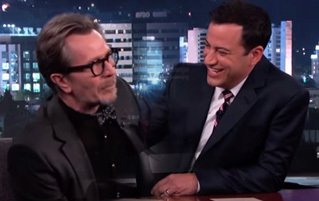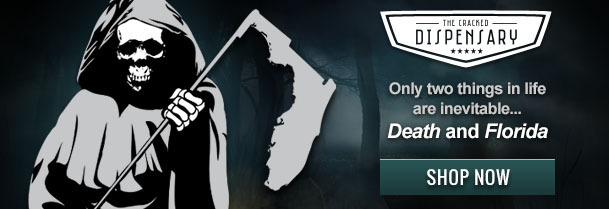The 5 PR Tricks Famous People Use in a Public Apology

So you're a big-time celebrity and you've just pissed off millions of people in the world by saying something astoundingly dumb. We've all been there. What's important now is getting back in the public's good graces by issuing a heartfelt apology -- and by "heartfelt" we mean "coldly manufactured using the following tips." The closer you stick to the formula we're about to present, the sooner everyone will forget that you're an objectively terrible person and go see your movie/buy your record/re-elect you for public office.
So whether you're planning to get drunk in public, insult an entire ethnic and/or religious group, yell at some nice officers, or do all three things at the same time (see: Mel Gibson), just keep these pointers in mind and you'll be fine!
Play the "Hey, I'm a Victim Here, Too!" Card
According to experts, the perfect script for an apology goes like this: (1) say how much you regret the incident, (2) apologize clearly, and (3) grovel for forgiveness. However, celebrities know a little about this subject, and they've added an important step to that recipe: (0) point out that you're a victim here, too, in a way.
For instance, back when David Letterman came under fire for not being able to stop boning his staff, he started his public apology by mentioning that this whole thing came out because he was blackmailed. Only two minutes later did he get around to the "Oh, by the way, sorry to my wife and stuff" part, but he already had our sympathy by that point.
It can be more subtle -- take Christian Bale's apology for being an asshole on the set of Terminator Salvation. He let everyone know he's "not comfortable" and "doesn't know how to handle" being a movie star -- he's a big doofus, just like us!

He has yet to apologize for the movie itself, though.
Jonah Hill apparently paid close attention to these lessons. After he decided to throw a homophobic slur at a paparazzo (instead of going the noble route and giving him the finger), he started his apology by saying he's been a gay rights activist "from the day I was born," followed by a recap of how that paparazzo was hounding him. By the end, he even managed to throw in a good "I am not good at being a famous person" -- it was beautiful, and it's been recognized as one of the most honest celebrity apologies ever. Bravo, Jonah.
What Not to Do: "Some of My Best Friends Are ___!"
At the opposite end of the spectrum, we have Gary Oldman, who attempted to defend Mel Gibson's anti-Semitic remarks during a Playboy interview (on the basis that "everyone" says that stuff anyway). Unfortunately for Oldman, it turns out Jewish people do read Playboy for the articles, leading him to issue a clumsy apology in which he tried a little too hard to make it clear that he just loves all things Jewish:

"And may I just say, matzo ball is by far my favorite soup."
It was rejected by the Anti-Defamation League.
Apologize in the Same Format in Which You Fucked Up
Here's a simple trick that big corporations already use to make their apologies look more honest: However it was that your scandal broke out, apologize through the same channel. For example: Last week, when the official American Apparel Tumblr account posted a photo of the Challenger disaster thinking it was some nice patriotic fireworks, they immediately apologized through the same Tumblr.

To be fair, "accidentally reblogged something from Tumblr" could go much, much worse.
This works for people, too. When Steve Martin made the mistake of tweeting an insensitive and racist joke, he quickly apologized via the same format, and that's probably a big reason why you hadn't heard of that scandal until just now. Going back to Christian Bale, his rant was released as an audio tape, so he apologized via a radio show. Did you get recorded going crazy at an officer through a dashboard camera? Whether a TV apology is your first stop or something you do weeks later can make all the difference between being remembered as Reese "We Already Forgot What She Said" Witherspoon or Mel "Adolf" Gibson.

"I wanted to apologize from under the desk, but Hillary shot that down."
What Not to Do: Apologize While Pooping
We mentioned that saying you're sorry through social media is a good idea, but only if the transgression happened there in the first place. For instance, when Alec Baldwin called a paparazzo a homophobic slur and Daniel Tosh tore into a heckler at one of his shows, they both apologized via Twitter, which came off about as heartfelt as doing it through a bar napkin. When the act was committed in person, it's best not to apologize over something that is almost definitely being written while squeezing out a log on the toilet.
Avoid the Words "If" and "But" (and "Sorry")
An increasing number of public apologies come off as insincere because of one simple word: "if." Psychologists have determined that when you insert the word "if" into your apology, you're officially a giant turd who isn't owning up to his or her actions. Saying "I'm sorry if you were offended" implies you wouldn't be sorry if the other person wasn't being such a big pansy about the whole thing.
Look no further than Janet's boob: When we got to glimpse Janet Jackson's mutant nipple at the Super Bowl, Justin Timberlake issued a statement where he dropped the "if" bomb, and many still herald it as one of the worst celebrity apologies ever. In the spirit of his non-apology, Timberlake even claimed the stunt was unintentional, which exactly zero people bought.

"I was just coincidentally narrating my exact actions at the time."
Another example is Alec Baldwin's Twitter apology, where he tried to pretend he was just uninformed that the word he used was offensive. That word was "cocksucker," by the way. Apparently when you grow up surrounded by Baldwins, that's like the nicest thing you can say to a person.
Other words to avoid? "But" (because it's usually followed by some bullshit excuse) and, oddly enough "sorry." According to the experts, saying "I apologize" has more of an impact than saying "I'm sorry" -- the former is unambiguous, but it's best to stay away from "sorry" because it can have many different contexts and meanings.

For instance, to prove you're an absolute douchenozzle.
What Not to Do: Use the N-Word
The N-word is another word you probably shouldn't use. Ever. But especially when someone gets offended at something you said in your standup routine and you're trying to figure out how to defuse the situation. Believe it or not, throwing the N-word out there 15 or 20 times just makes it worse.

"Now you tell me."
Going on a Late Night Show Tricks People into Forgiving You Faster
Perhaps one of the best and most efficient ways to ensure that your public apology goes off without a hitch is to issue it on a late night talk show -- in fact, that's probably the only reason those things still exist. Hugh Grant knew this all the way back in '95 and apologized on Jay Leno's show for being caught with a prostitute and cheating on his wife. Jonah Hill went on Jimmy Fallon's show to issue yet another top-notch apology, and Gary Oldman followed suit by appearing on Jimmy Kimmel to issue his second (and better received) apology.

"Remember when I was in Harry Potter? Remember how magical that was?"
Meanwhile, Letterman was able to skip the middleman and go straight to the "making fun of the scandal" phase. But why does this work so well? Basically, because laughter lulls our feeble brains into a false sense of security. The sooner we laugh after their apology, the quicker we are to forget their bad actions and feel like it's OK to be their fan again. If they let weeks go by without a lighthearted late show appearance, that leaves us too much time to actually think about how awful they are.
And even if you don't watch the show, you bet your ass every site will be talking about the apology the next day and reposting the funniest clips, thus helping bury the awfulness. You'd have to try really hard to screw that up ...
What Not to Do: Go on a Late Show to Apologize, Not Apologize
Kanye West also tried to the Leno route when he Kanye'd all over Taylor Swift's acceptance speech at the MTV VMAs, but ultimately ended up admitting he had "no regrets" over the situation, proving exactly how honest he was being.

"My only regret is that I let her begin."
If It Doesn't Work, Just Try Again
You'd think that apologizing for being terrible, having the apology rejected, and then apologizing again in a different way would tip people off that you don't actually mean any of this crap -- your entire learning process consisted of firing your publicist and hiring another one to try a different combination of sorry-sounding words.
And yet, this technique works surprisingly well. When Oliver Stone made some less than savory remarks about the Holocaust and Jewish people in the media, his first apology was vague and didn't address his anti-Semitic remarks, giving the impression that he didn't give a shit. So, he tried again, using the feedback from the first apology to know exactly what to say, and the Anti-Defamation League actually forgave him.

"If you don't like that one, I have 15 different drafts with contradictory opinions."
Serena Williams tried to do the do-over, too. We mentioned Gary Oldman's double apology above. And going back to the ADL, when Mel Gibson issued a hurried apology the morning after his arrest saying he was sorry to "anyone who might be offended," the Anti-Defamation League basically told him to go screw himself. So he just tried another time, this time specifically addressing his racist remarks -- and it worked! People started writing articles about why he should be forgiven ...
What Not to Do: Keep Being Terrible
... until Mel got himself recorded being a racist dickwad again. Yep, not even all the tips in this article can help that guy. In conclusion, don't be Mel Gibson, you guys.

Thanks for making Lethal Weapon rewatchings all awkward, asshole.
Hillery has a Twitter, which you can follow here.
